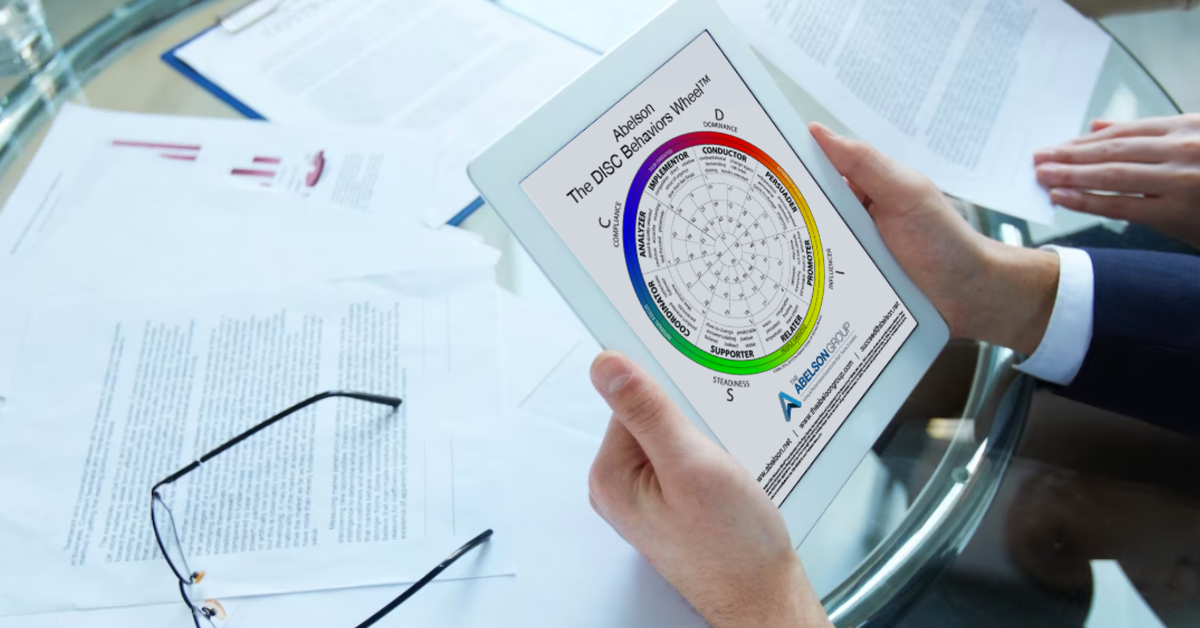Two people you know take our DISC and have almost identical DISC scores, but they are as different as night and day. If DISC is a personality profile, how can their personalities be so difference? The answer is easy. DISC DOES NOT measure personality. It only measures one aspect of personality, our behaviors. These two people are probably different, because of another aspect of their personality; their MOTIVATORS.
Our personalities are much more complex than just behaviors. What drives those behaviors, what they are passionate about, is what we call motivators. Motivators along with DISC behaviors, are two aspects of our personality that have a significant impact on who we are and what we do.
For example, two people have intense “D” behaviors. Both people are daring, competitive, and like to be in control. One person is selfless and donates their time to Habitat for Humanity. Year after year they are involved in building more homes than just about anyone else in Habitat for Humanity. The other “D” person is much more utilitarian, they don’t volunteer their time, and instead focuses on earning money; making over $500,000 each year. Two identical DISCs, two very different people.
Why Are Motivators’ Important?
Here is just a few of the many reasons MOTIVATORS are important. After reading this short list, read what you can do to more effectively, without relying on money, motivate others.
They Allow Us to Motivate Without Money
We measure six different motivators AND 12 different driving forces. Only one of the motivators and one of the driving forces has anything to do with money. The other five motivators and 11 driving forces are motivated by something other than money. So, you can create passion, motivate people, and have them do incredible things just by offering them non-financial motivators they are passionate about. For example, some people like to set rules, while others like to follow rules set by someone else. Some people are selfless, like our Habitat for Humanity person, while others are driven by money. Still others like to learn for the sake of learning, while others like doing things that feel right and meet their emotional needs. Match reward systems with what people are passionate about, and it’s easy to motivate them.
Gives Direction on Assigning Tasks
We are back at looking at our six different motivators and 12 different driving forces. Knowing what a person’s motivators are, or what they are passionate about, helps us assign them to jobs or tasks that will be self motivational. For example, align the person who likes to set the rules with developing systems. Align the person who likes to learn and share their knowledge with teaching others the techniques they have mastered. Do this and they will be motivated to perform because they are passionate about doing the task, not because you offer them more money.
Enhances Staff Engagement
Ask someone to do something they want to do, and their engagement will go way up. Of course! Have a technician do the type of technical work they want to do, and they will engage and get it done. Align multiple motivators that already exist in certain jobs, with the motivators of a particular person, and they will remain engaged and not want to turnover or leave.
Increases Time At Work
The old saying is very true, “have a person do what they love to do and they never work a day in their life.” It’s not work. It’s play. When motivators and driving forces are aligned with what a person loves to do, they keep in doing it and keep on working. After all, it’s not work to them. It’s play.
Leads to Greater Performance & Satisfaction
When we are doing what we love to do, we usually do it well. Research for decades shows that when people perform well, they are more satisfied with the job. So, if you want to increase performance and satisfaction, ask a person to do what they want to do, what they are passionate about doing, and they will perform better and be more satisfied.
Decreases Staff Stress
If you are doing what you like to do, what you are passionate about, you typically experience less stress. We know for sure, if you have to do something you don’t like or don’t want to do, it will increase your stress. Align people with what motivates them, what they are passionate about doing, and what increases their satisfaction, and their stress will decrease.
Bottom Line
Align people with what motivates them and what they are passionate about, with the behavior you want them to do, and you will have a …
- higher performing satisfied staff
- less stress at work
- increased engagement
- increased time working and
- you will be able to motivate all this, in most cases, without having to pay them more.
How Can The Abelson Group Help Do The Above?
Two easy ways:
- You can use our cost-effective assessment (we measure motivators or driving forces) to identify what motivates everyone in your life and then align them with tasks that have their motivators / their driving forces.
- Attend our DISC & Motivators Certification and learn the ins and outs of understanding the motivators, the driving forces, and our DISC; and then get incredible results without needing to use additional financial rewards.




